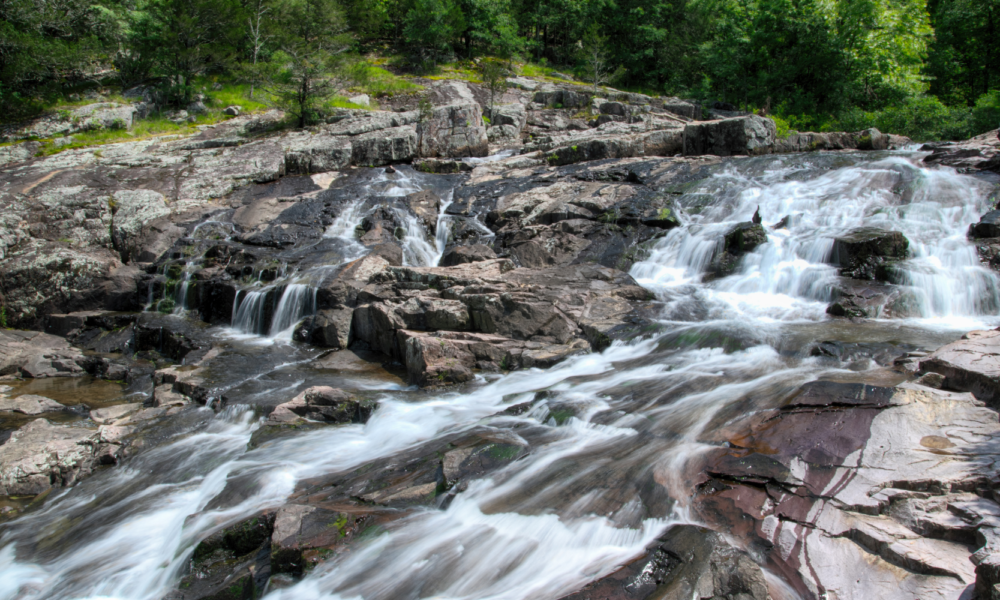Missouri’s state park system is one of the best in the country and our federally protected lands include the first national park designated to protect a river system, the Ozark National Scenic Riverways, and one of the original national wild and scenic rivers, the Eleven Point River. From county parks to the Mark Twain National Forest, Missouri’s public lands protect natural treasures such as springs, wetlands, wildlife habitat, and valuable water resources.
MCE has worked to save our parks and public lands from private development and polluters since we were founded. These spaces are not only crucial to the survival of a multitude of species, but they are crucial to our own survival as well.
Human Health Benefits of Parks and Public Lands
There are an incredible amount of research articles, reports, and testimonials about the benefits of parks and public lands on human health, and we have highlighted a few of them below.
- Access to green spaces promotes cognitive development in children
- Views of green spaces near children’s homes promote self-control behaviors
- Adults in neighborhoods with more green space reported being able to better perform daily activities and tasks
- Exposure to natural environments improves working memory
Source: https://journals.sagepub.com/doi/pdf/10.1177/0963721419854100
- Growing up with abundant green space decreases the risk of developing mental illness later in life
Source: https://www.pnas.org/doi/10.1073/pnas.1807504116
Report – Parks and Other Green Environments: Essential Components of a Healthy Human Habitat
The National Recreation and Park Association developed a report that cites dozens of peer-reviewed research articles outlining the benefits of parks and green/blue spaces on human health and well-being.
The report states:
“Yes, the benefits of nature that have been intuited and written about through the ages have withstood rigorous scientific scrutiny. Yes, we still find these benefits when we measure them objectively; yes, we still find these benefits when non-nature lovers are included in our studies; and yes, we still find these benefits even when income and other factors that could explain a nature-health link are taken into account. In the face of the tremendously diverse and rigorous tests to which the nature-human health hypothesis has been subjected, the strength, consistency, and convergence of the findings are remarkable.”
A More Equitable Outdoors
Despite all of these benefits, access to the outdoors has not been equitable. Many low-income communities and communities of color have been left out or actively discriminated against in their need for access to nature.
MCE has been engaged in improving access to nature for all Missourians for decades, and we are the fiscal sponsor of an organization working to break down barriers to access the outdoors, Black People Who Hike.




